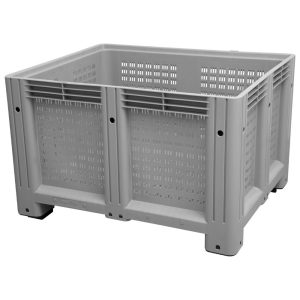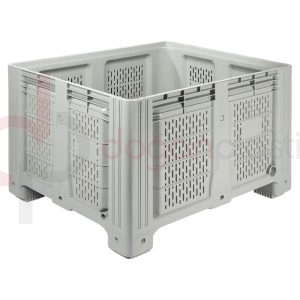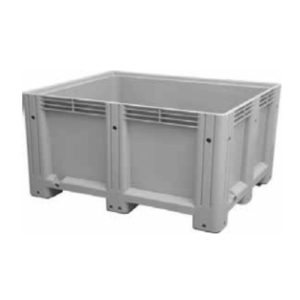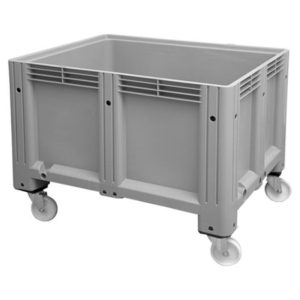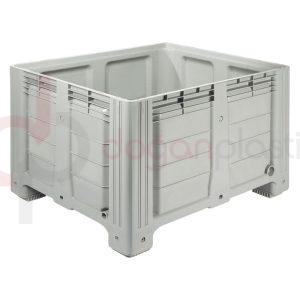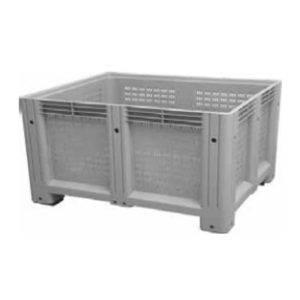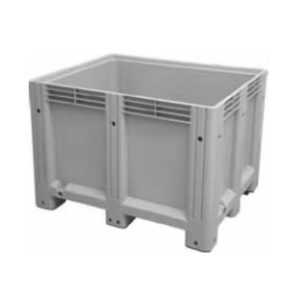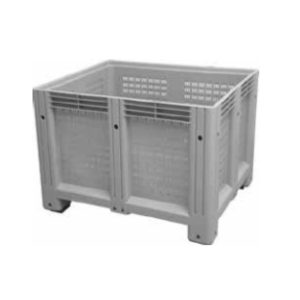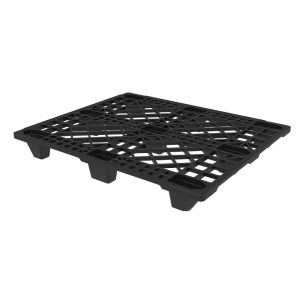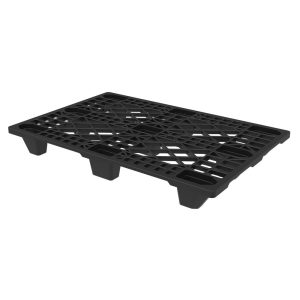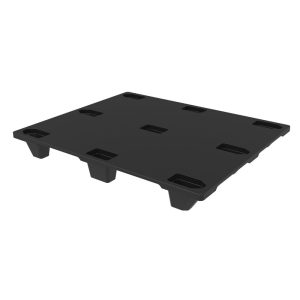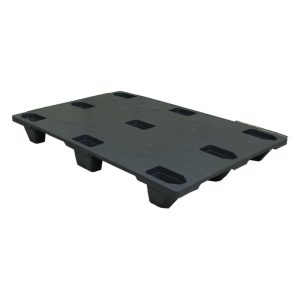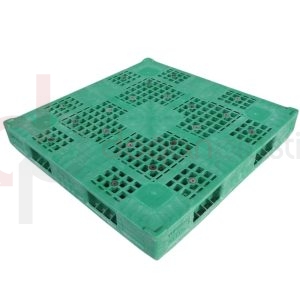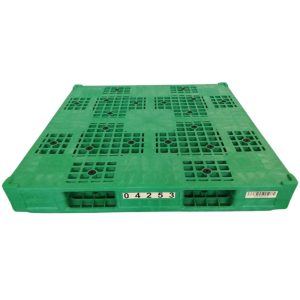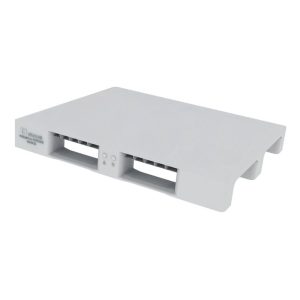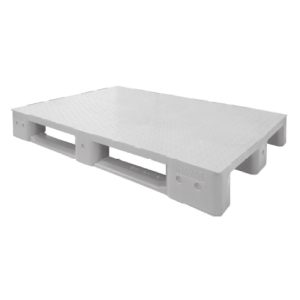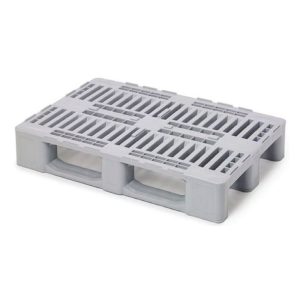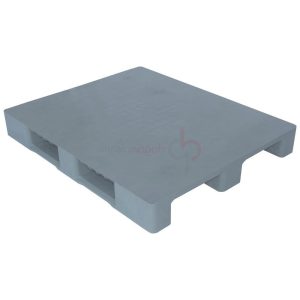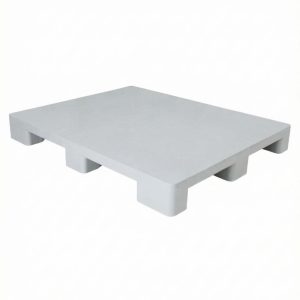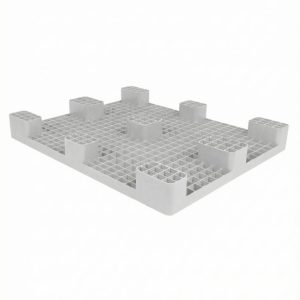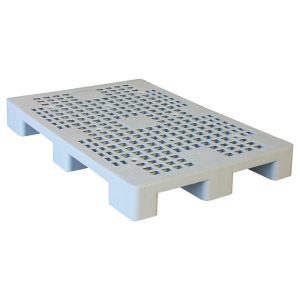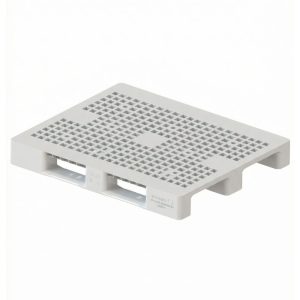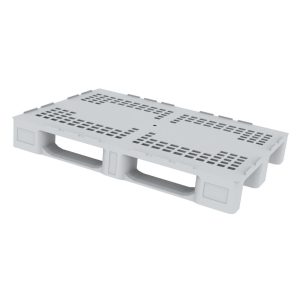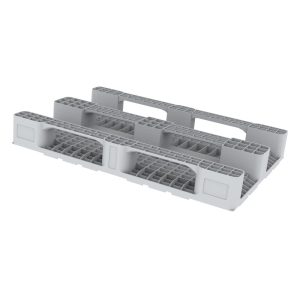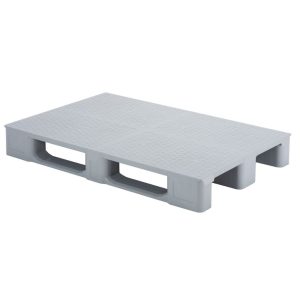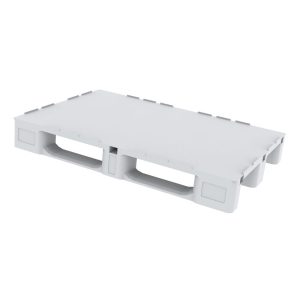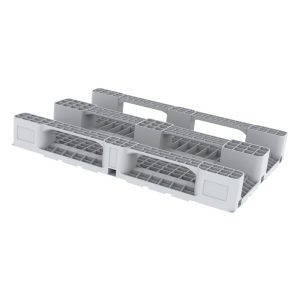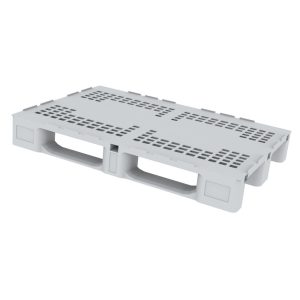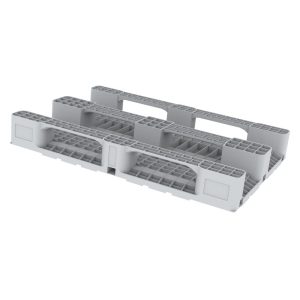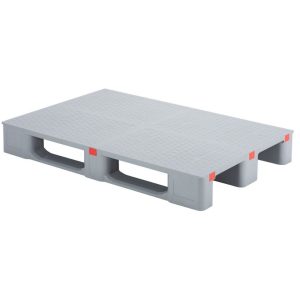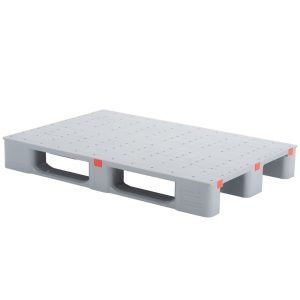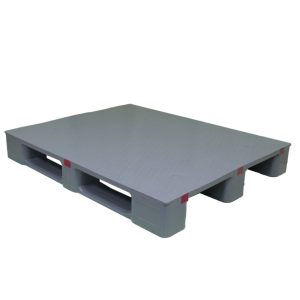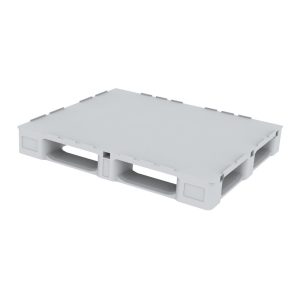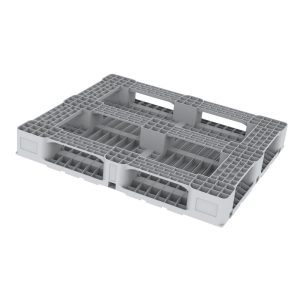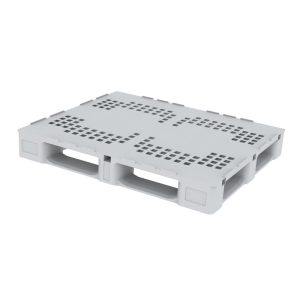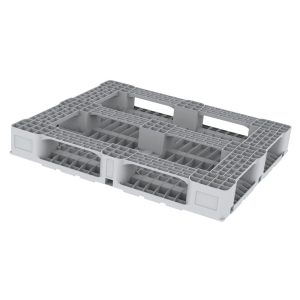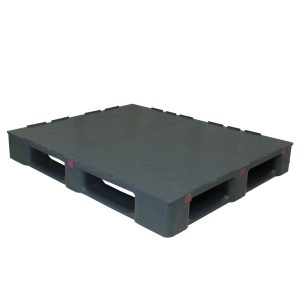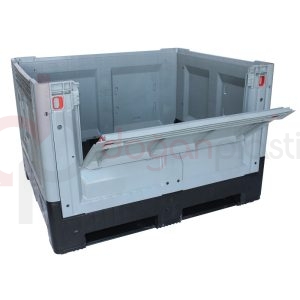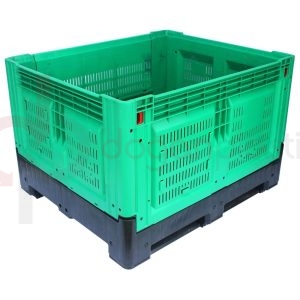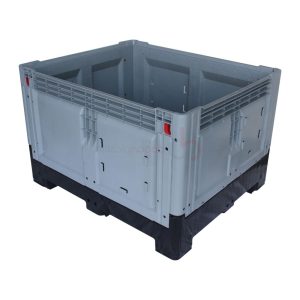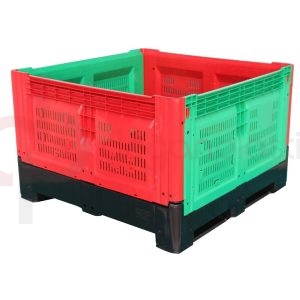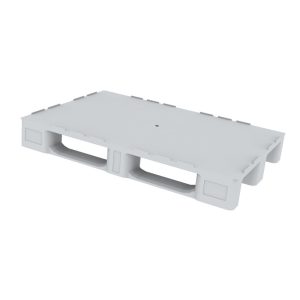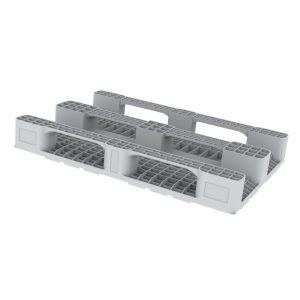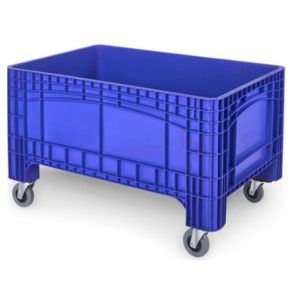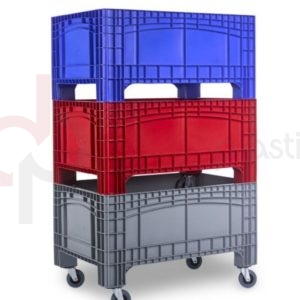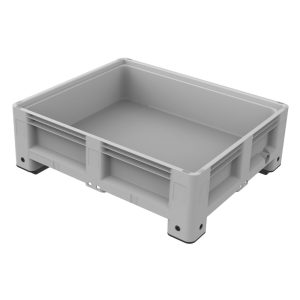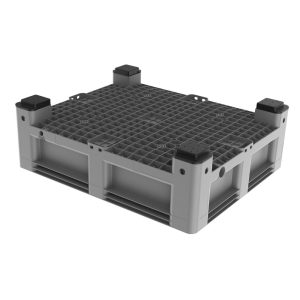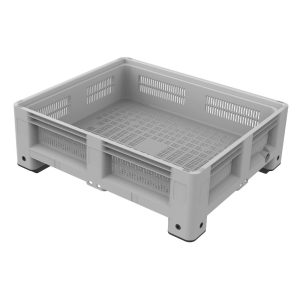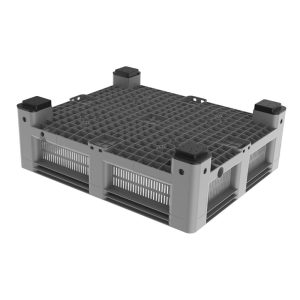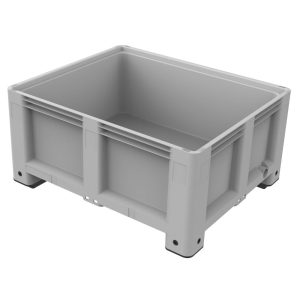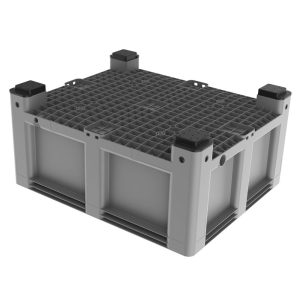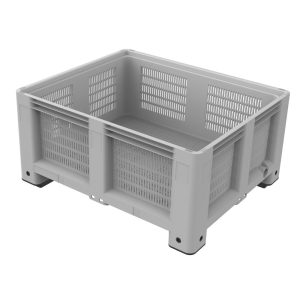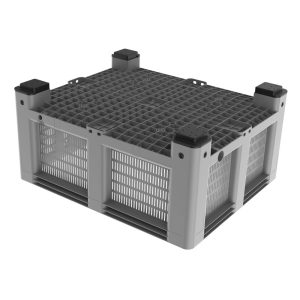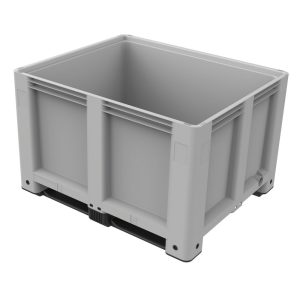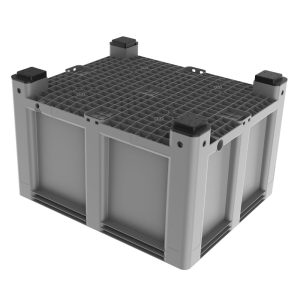Plastic pallets are easy to clean and sanitize, reducing the risk of contamination during transportation. This is crucial when handling fruit and vegetables to meet stringent hygiene and food safety standards.
Benefits
Products used in the fruit and vegetables industry
Plastic pallets are more durable and have a longer lifespan compared to wooden pallets. This is especially important in the food industry where pallets undergo frequent handling, transportation, and cleaning processes.
Unlike wood, plastic pallets are resistant to moisture, mold, and bacteria. This feature is beneficial for transporting vegetables and other perishable goods as it helps maintain product quality and reduces the risk of spoilage.
Plastic pallets are manufactured with precise dimensions and weight, providing consistency in load distribution. This is essential for optimizing space in transportation vehicles and ensuring that weight limits are not exceeded.
Plastic pallets can be designed with specific features such as ventilation holes or anti-slip surfaces, catering to the unique needs of transporting different types of fruit and vegetables.
Plastic pallets are generally lighter than their wooden counterparts, contributing to fuel efficiency and reducing overall transportation costs. The weight savings can be significant when transporting large quantities of food products.
Some plastic pallets are recyclable and can be reused multiple times, making them a more sustainable option than single-use wooden pallets. Choosing recyclable materials aligns with environmentally conscious practices.
Plastic pallets may comply with international regulations for phytosanitary measures and quarantine standards, ensuring that the transportation of fruit and vegetables adheres to global trade regulations.
Plastic pallets often have features such as ergonomic handles or handgrips, making them easier to handle manually. This can be advantageous during loading and unloading processes.
Plastic pallets are well-suited for automated handling systems, facilitating efficient and seamless processes in modern warehouses and distribution centers.
In conclusion, using plastic pallets for transporting food and vegetables offers a range of benefits, from maintaining hygiene and food safety to improving durability and reducing overall transportation costs. As the industry continues to prioritize efficiency and sustainability, plastic pallets are likely to remain a popular choice for the logistics of perishable goods.

